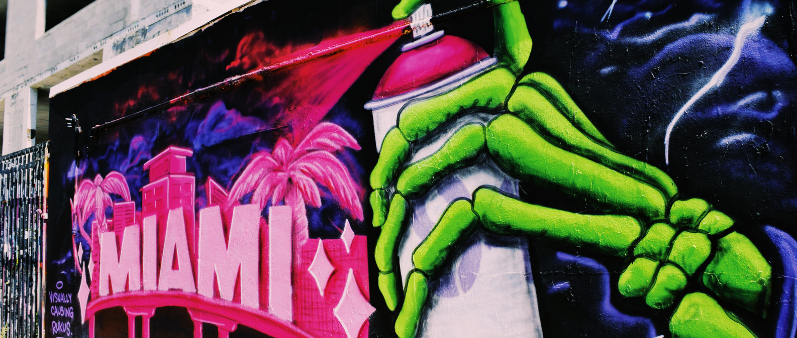
Miami Slang – Beginner’s Guide to Cuban-American Spanglish
Pero Like Supposably Hablamos Diferente…
Have you ever heard the joke that when you go to Miami, you should take your passport because you are leaving the United States and entering Northern Cuba? Although you don’t have to actually get a passport to go to Miami, you might want to brush up on your Spanish because there is some truth to that joke.
100 years ago, Miami was nothing but lowly swampland until Cuban refugees arrived and built it from the bottom up. Now, colorful art deco buildings flood the streets of South Beach, new high rise buildings shoot upwards, and aromas of Cuban cigars and coffee waft about while abuelitos (“grandpas“) play dominos on Calle Ocho.
We know the culture and landscape have changed two or three generations after the first waves of Cuban immigration, but what about the language spoken in Miami?
What Language is Spoken in Miami?
Spanglish, that uniquely American blend of Spanish and English, is the official Miamian language – you will hear it in schools, businesses, and public spaces. Even a ‘gringo’ will be greeted first in Spanish and then in English. You can see how prominent the Spanglish language is from this typical sign in a Miami cafe:
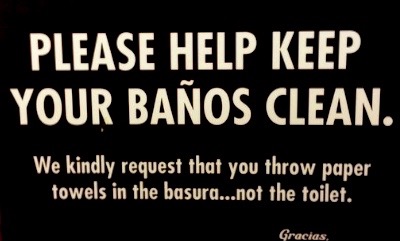
Now, let’s explore Miami slang to discover the language spoken in this air-conditioned, Latin American concrete jungle.
Miami Slang – Ten Important Cuban-American Spanglish Phrases
1. Dale (da-lay)
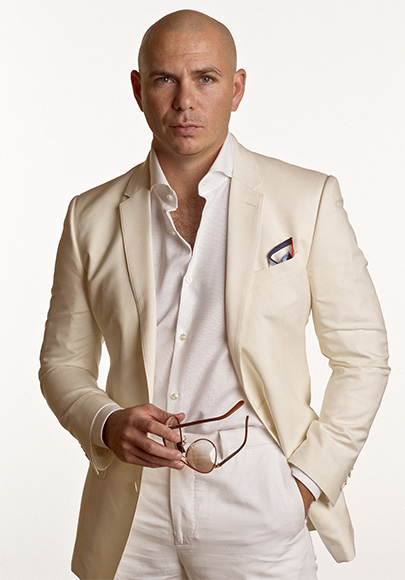
Definition: Dale is the coined term of Miami/Cuban rapper Pitbull! It is a multipurpose affirmation with a variety of meanings ranging from “Yeah, okay.” to “For sure bro.”, and finally “Let’s go, let’s do it, I’m in!”
Dale is used all over Latin America (see Vale in Spain) but has taken on an inextricably Miami identity due to its wide usage in Pitbull’s songs.
Sentence: Caro, quieres salir hoy? Dale, vamos! (”Honey, you wanna go out tonight? Yeah sure, let’s go!”)
2. Qué bolá asere? (ke-bo-la-ah-sehr-ey)
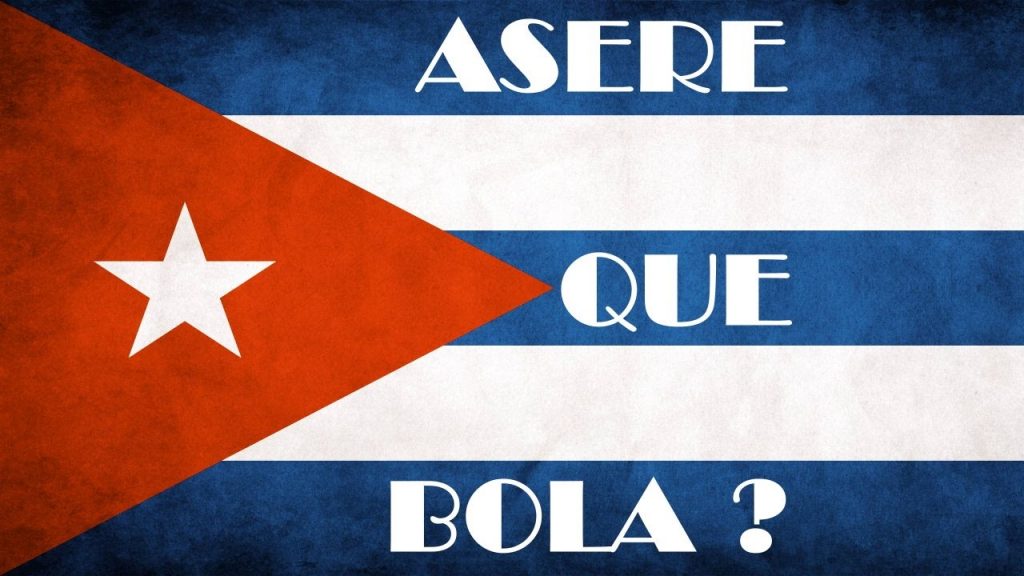
Definition: Que bola (usually written sans accent marks) is Cuban for “What’s up man, how’s it hangin’?” Asere is the Cuban word for “bro.” Just to be clear: Asere que bola is to Cuba as Che boludo is to Argentina or No mames wey is to Mexico as “Hella awesome dude” is to California. Oséa, suuuper important.
Sentence: Que bola asere? Como tu ta tío? (“How’s it goin’, man? How are you uncle?”)
3. Guagua (wa-wa)
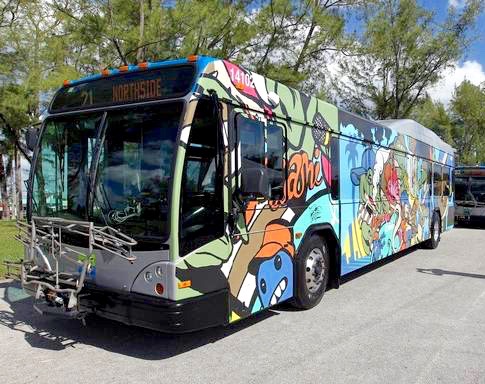
Definition: The public transit or bus. The word originates from the Caribbean countries of Cuba, Puerto Rico, and the Dominican Republic.
Alternate definition: Countries further down south (Chile, Argentina, and Bolivia, for example) use guagua to mean baby or toddler. This could make for some confusion…
Sentence: Tengo que coger el guagua para el Dolphin Mall. (“I gotta grab the bus to the Dolphin Mall.”)
4. Hacer un show
Definition: Miamians love themselves some low budget hispanic novelas (soap operas). We also see this play out in real time in the streets of Miami. Hacer un show, which comes from the Spanish verb hacer (“to do”) and the English word “show,” is the Spanglish narrative of acting out a novela. This may mean to act overly dramatic, to be attention seeking, or just be downright obnoxious. You may also hear the command Deja el show! meaning “Drop the act!” when someone is being dramatic or obnoxious.
Sentence: Ay Maria siempre hace todo un show. (“Ugh Maria always makes a scene.”)
5. Pero Liiiiike
Definition: The Spanglish version of the tasteful millennial filler “ but like…” Pero like is deeply embedded into the Miami lexicon of even the third-generation Cubans who grew up speaking English with their siblings. It is suuuuper catchy.
Sentence: Quería ir a la fiesta pero like it started raining. Ay qué pena. (“I wanted to go to the party but it started raining. Aw, that stinks.)
6. Liga (lee-gah)
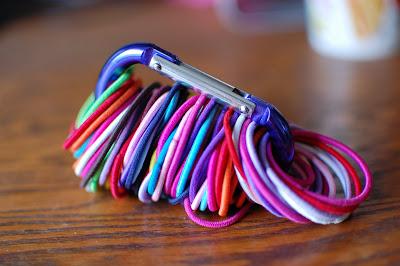
Definition: A hair-tie to throw up that mess of salty hair when the humidity is at 99% (again). This Spanglish term is used mostly by women 35 and under but it’s an everyday necessity for women (and men), English or Spanish natives.
Sentence: Amiga, me das una liga por fa? (“Girl, you got a hair-tie for me please?”)
7. Chancs (chancla, chancletas)
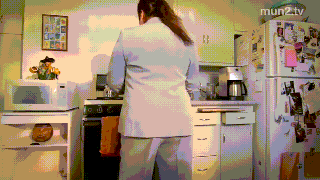
Definition: Flip flops. Typically worn for all daytime occasions and in the house.
Alternate definition: A dangerous child-rearing weapon that comes flying at the head when your mom hears you doing/saying something inappropriate or rude.
Sentence: Bro, go back, I left my chancs at home. Or No mamá, con la chancla no! (”No mom, not with the flip flop!”)
8. Ya tu sabes
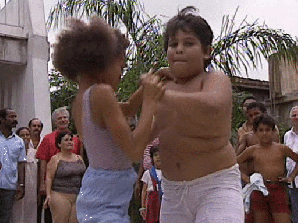
Definition: “You already know, papá!” You’ll hear every older Rico Suave where Paco Rabanne is in Miami throw a “Ya tu sabes” at you on the daily, sometimes with the last “s” just fading away into the abyss of lost syllables of Caribbean Spanish. This is a very Caribbean/Central American slang that you wouldn’t hear as much in the colder countries of Argentina, Uruguay, and Chile.
Alternate definitions: “You already know what’s up, you already know how it is homie!” Sometimes followed by Ya tu sabes como va (“You already know how it goes…”). Just add a dale and you got yourself a Pitbull song!
Sentence: A saqué a bailar… ya tu sabes! (“I took her out to dance… you know what’s up!” )
9. Chonga (chawn-gah)
Definition: A Miami girl of Hispanic origin that wears super tight hair gel, tight Brazilian pants, Chinese slippers, sharpie lip liner, giant hoop earrings, and a necklace with her name on it – or some combination of the aforementioned. She may also be caught with a drawstring backpack with a Puerto Rican flag on it hanging out in Hialeah. The word has turned into a complete sub-culture of the emotionally expressive, sometimes sexualized and aggressive working-class women in Miami.
These infamous Chonga Girls above stole the hearts of Miamians with their hit single Chongalicious.
Alternate definition: Can be used to describe cheap or tacky clothing.
Sentence: Those hoops make you look super chonga, bro. Or “I bought my dress at a chonga store…leeeeterally so cheap.”
10. Supposably
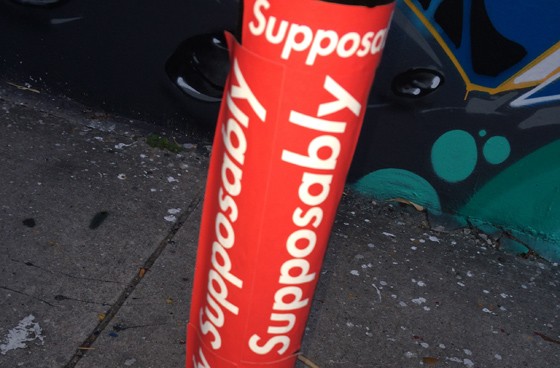
Definition: The Spanglish version of “supposedly,” passed down gracefully from years of teachers and caretakers who took English as a second-language. Also see Miami’s oral tradition of irregardless, a solid attempt at “regardless.”
Sentence: Pero like supposably they broke up. Qué pena. (“But like supposedly they broke up. What a shame.”)
Pero liiiike, get the picture bro?
Languages, like ecosystems, thrive at the cross-section of diversity. Latin America meets the USA in Miami, Florida, a melting pot of Latino’s grasping for their roots to revive a culture that lurks in the shadow of the Cold War. The least they can do is weave their music, language, and food into every thread of Miami’s vibrant culture. Supposably you can see this language manifested in Miami’s slang, ya tu sabes!
Learn more about Miami, Spanish, and Latin American culture in our Miami Food Tour – Learn Spanish Through Latin American Cuisine post. And get yourself ready to explore on your own with the newly updated Pimsleur Spanish courses!